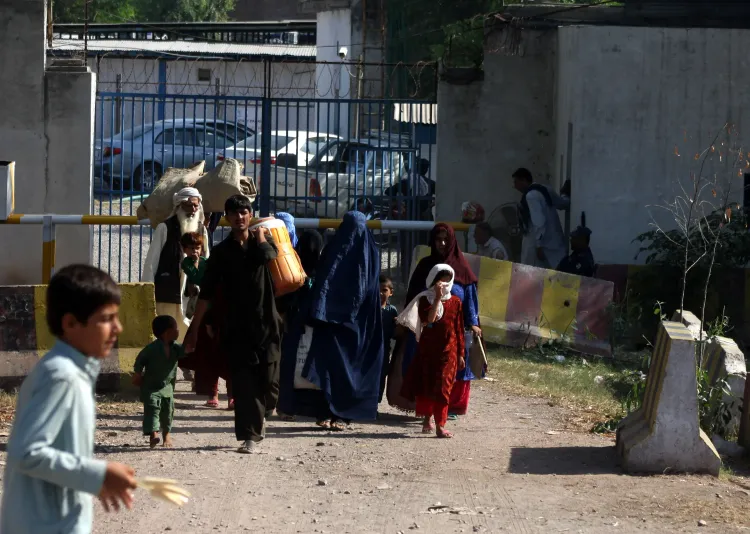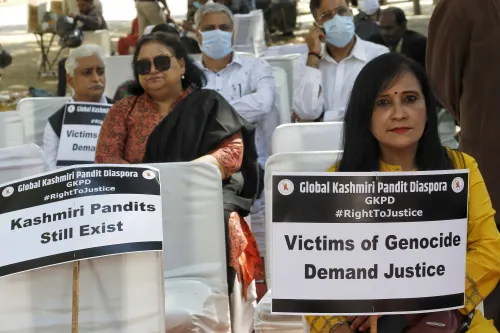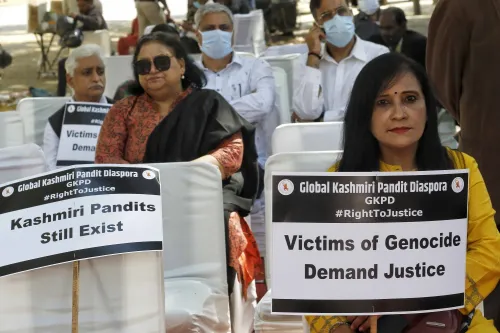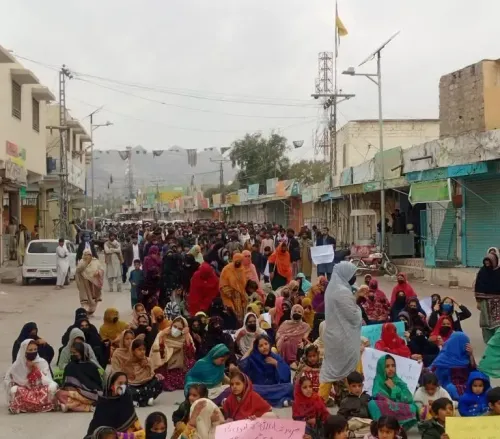Why Were Over 6,500 Afghan Refugees Deported from Pakistan and Iran in Just One Day?

Synopsis
Key Takeaways
- Mass Deportation: Over 6,500 Afghan refugees returned in one day.
- Humanitarian Concerns: Risks of persecution upon return to Afghanistan.
- Legal Challenges: Afghan nationals are seeking legal protection in Pakistan.
- International Response: Advocacy from humanitarian organizations for refugees' rights.
- UNHCR Involvement: Monitoring the situation and ensuring adherence to international laws.
Kabul, Nov 24 (NationPress) More than 6,500 Afghan refugees were forcibly returned to Afghanistan from Iran and Pakistan in a single day, as reported by a senior Taliban representative on Monday.
Taliban Deputy Spokesperson Hamdullah Fitrat shared insights from the High Commission for Addressing Migrants’ Issues on X, stating that 1,200 families, totaling 6,532 individuals, crossed back into Afghanistan on Sunday.
He noted that these Afghan refugees entered through various crossings, including Pul-i-Abresham in Nimroz, Spin Boldak in Kandahar, Bahramcha in Helmand, Islam Qala in Herat, and the Torkham crossing in Nangarhar.
According to Pajhwok News, Fitrat reported that 1,492 Afghan refugee families, consisting of 7,695 people, were taken to their home regions, while 1,387 families received humanitarian support. Additionally, telecommunication companies provided 1,294 SIM cards to the returning Afghan nationals.
Fitrat further mentioned that 11,855 Afghan refugees were forcibly repatriated from Pakistan and Iran the previous day.
Recently, around 400 Afghan individuals, including artists and their families, approached the Peshawar High Court seeking protection against their forced return to Afghanistan, fearing persecution upon their return.
The Afghan nationals filed a collective petition, urging the court to grant them refugee status in Pakistan. Among the petitioners are Zakiya Dunya Ghazal and other Afghan artists, as reported by Pakistan's leading daily Dawn.
The petition references a previous High Court ruling from December 13, 2024, regarding other artists and transgender individuals, requesting a similar outcome.
Respondents in the petition include Pakistan's Federal Interior Ministry, Federal Secretary of Cabinet Division, and various authorities like the National Database and Registration Authority, among others.
The petitioners argue that it is perilous for artists and singers to reside in Afghanistan following the Taliban's takeover, as they openly opposed cultural expressions like music. They recounted their relocation to Peshawar after fleeing Afghanistan, asserting that Pakistan's forced repatriation policy violates existing UNHCR agreements and the country's international obligations.










